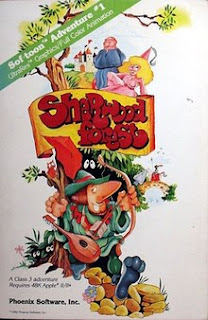Written by Joe Pranevich
Here we are again, for the third time! Video game history is filled with low-effort sequels, followup games built with the same engine for a fraction of the cost. Even the prestige studios got into the game. For all that the Ultima series was famous for building a new engine for every release, that didn’t stop them from releasing (or at least distributing) Ultima VII Part 2, Savage Frontier, Martian Dreams, or Ultima Underworld 2. Sierra, Infocom, and LucasArts were all made successful by building great engines and then making as many games for those engines as possible. This is pretty normal in adventure game history.
For Sherlock Holmes Consulting Detective, ICOM’s strategy can be best summarized by the ad blurb that they put on the box:
“What they said about Sherlock II, you'll say about Sherlock III."
This might not seem significant, until you realize that they used the exact same blurb on the second game, with just the Roman numerals decremented by one.
In a way, this is completely expected: at some level, all three games in Consulting Detective are (quite literally) the same game. The 1981 tabletop game that ICOM licensed featured 10 cases to solve, three of which have been adapted each in the first and second games, and three more finally in this third game. (More on that “missing” adventure in a bit.) We’re treating these games like sequels, but even the box clearly says that they are merely “volumes” in the same game. As such, ICOM saved money by re-using many assets: the manual, game map, menus, help videos, and overall interface are identical between the three volumes. But unlike many low-effort sequels, they still needed to write, direct, film, and edit all of the new videos that made up the cases. A FMV game will be made or broken based on the quality of the acting and videography. We’ll have to see how this one fares.
Having said all of that, I must admit that it is all only partly true. Why did I just lie to you? Read on for more.



.png)








.png)

